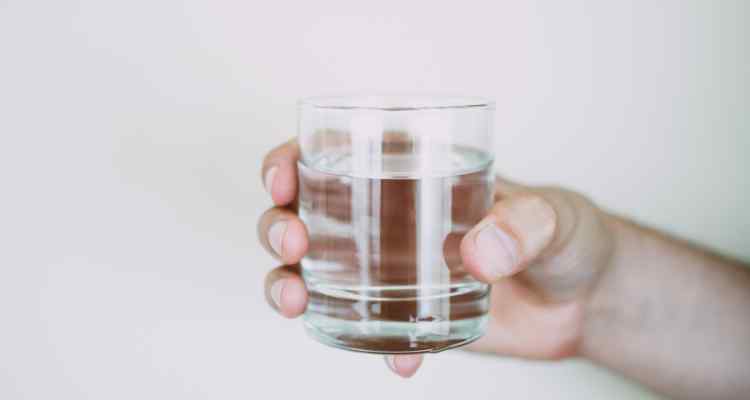Consuming contaminated food and water can have serious consequences on your health. Whether it’s due to poor hygiene practices during food preparation, improper storage, or contaminated water sources, ingesting harmful substances can lead to various illnesses and complications. In this article, we will explore seven potential outcomes that might occur if you consume contaminated food and water.
Food Poisoning
Food poisoning is one of the most common consequences of eating contaminated food. Bacteria such as Salmonella, E. coli, and Campylobacter are commonly found in undercooked meats, raw eggs, and unpasteurized dairy products.
Common symptoms of food poisoning include:
- Vomiting
- Diarrhea
- Nausea
- Fever
- Abdominal pain
Cases of food poisoning get resolved within a few days. However, for severe cases, you will require medical intervention.
According to a CDC estimate, in the United States, around 48 million people get sick every year from foodborne diseases. Out of them, over 120,000 people are hospitalized, while 3,000 actually end up dying from these diseases. The death toll from food poisoning and food-borne diseases is quite low. However, it is still concerning, which is why you shouldn’t take this health issue lightly.
Gastrointestinal Infections
Contaminated food and water can also result in gastrointestinal infections. Viruses, including norovirus and rotavirus, can easily spread through contaminated food and drinks. These infections can cause severe diarrhea, vomiting, stomach cramps, and dehydration, which are also common symptoms of food poisoning.
People with weak immune systems, young children, and the elderly are particularly vulnerable to these infections and are, therefore, at a greater risk of serious health problems.
Parasitic Infections
Parasites can also contaminate food and water, leading to parasitic infections. Protozoa like Giardia and Cryptosporidium are commonly transmitted through contaminated water sources. Parasitic infections can lead to problems like diarrhea, stomach cramps, and even weight loss. Long-term complications are also seen in some individuals if the symptoms are not addressed in time and treated properly.
Hepatitis A
As a form of viral infection, hepatitis A can be easily transmitted through contaminated food and water. This viral infection severely affects the liver and can lead to fatigue, jaundice, abdominal pain, and nausea.
Hepatitis A outbreaks are more common in areas that have poor sanitation and hygiene practices. This is why Hepatitis A is widely seen in places like Africa and the Indian Subcontinent.
Vaccination is available to prevent this infection, and it is essential to practice good hand hygiene and consume clean water and food to avoid contracting the virus.
Long-term Health Complications
In some cases, consuming contaminated food and water can have long-term health consequences. Certain foodborne pathogens, such as Listeria and Toxoplasma, can cause severe illness, especially in pregnant women, leading to miscarriage, stillbirth, or developmental disabilities in newborns.
On top of all that, consuming contaminated water has been linked to an increased risk of cancer, something that was brought to light to the masses thanks to the Camp Lejeune lawsuits. According to TorHoerman Law, the Camp Lejeune water contamination incident has led to many people developing different types of cancer, including breast cancer, liver cancer, and kidney cancer. To this day, the Camp Lejeune lawyers are working with the Camp Lejeune victims to seek justice and compensation for the incident.
It’s estimated that the Camp Lejeune water contamination settlement amounts could be somewhere between $10,000 and $500,000. These large settlement amounts expose just how severe the Camp Lejeune situation is and how water contamination can lead to long-term health complications and even death.
Heavy Metal Poisoning
Contaminated food and water can also expose you to heavy metals such as lead, mercury, and cadmium. Industrial pollution, improper waste disposal, and contaminated water sources are some of the primary sources of heavy metal contamination.
Prolonged exposure to these metals can lead to serious health problems, including neurological disorders, kidney damage, and developmental issues, particularly in children.
Antibiotic Resistance
Did you know that overusing antibiotics in the food industry has led to the rise of antibiotic-resistant bacteria? Consuming contaminated food with antibiotic-resistant strains can lead to difficult-to-treat infections. These infections may require stronger and more expensive antibiotics, posing a significant challenge for healthcare providers.
By practicing responsible antibiotic use and supporting sustainable farming practices, we can help mitigate the risk of antibiotic resistance.
Access to clean and safe food and water is a must for living a healthy life. Risking your health by consuming contaminated food and drinks is never a wise thing to do. Thus, if you want to avoid the problems discussed above, be extra careful with what you eat or drink.

